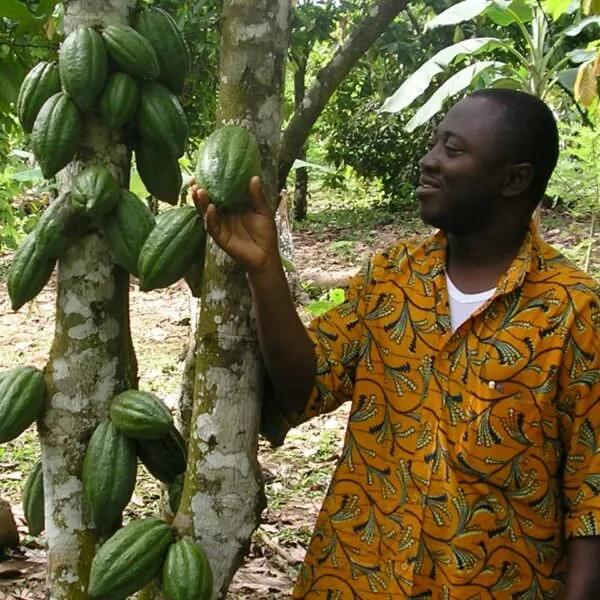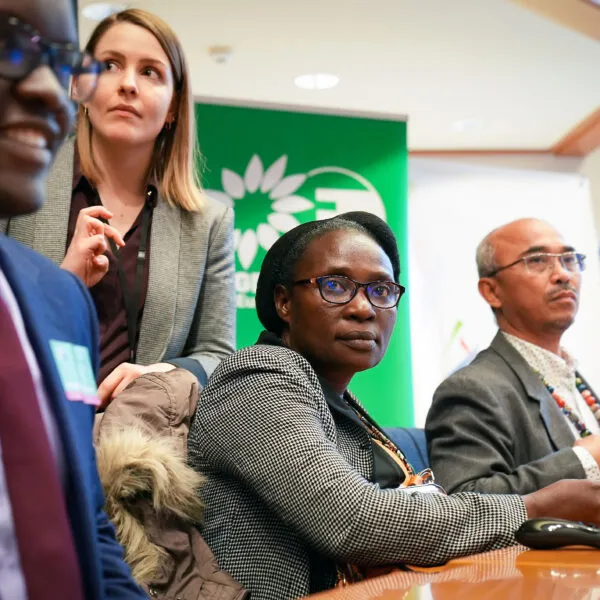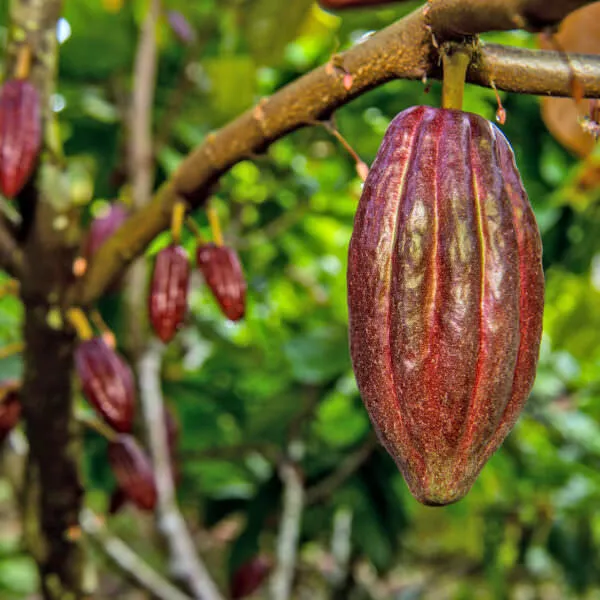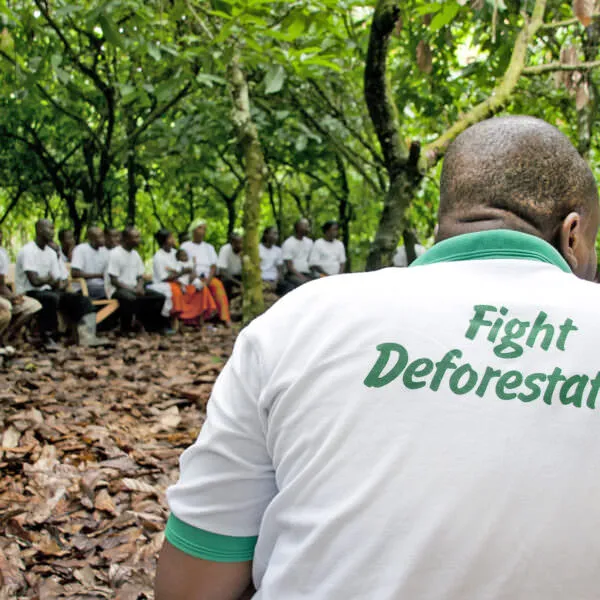When the cocoa farmers of Ghana’s Juaboso-Bia area began working with the Rainforest Alliance eight years ago, they were initially most interested in how more sustainable agricultural practices could eventually lead to higher incomes. “Your first interest at end of the day is that your yields will go up and that you’ll make more money,” said cocoa farmer Elijah Owusu-Cashiekrom.
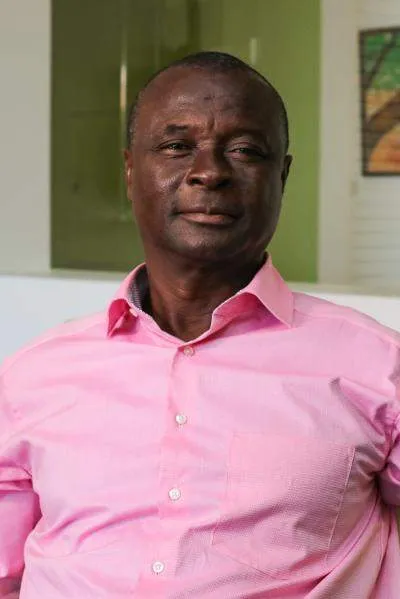
After undertaking training and technical assistance from the Rainforest Alliance, however, the farming communities in the region quickly came to recognize the relationship between conserving forests, stabilizing their local microclimate, and improving their livelihoods. In collaboration with the Rainforest Alliance, they formed an impressively robust and effective Land Management Board (LMB) to oversee conservation and agriculture activities in the area. Eight years later, the LMB is completely self-sustaining and autonomous—and transforming an entire landscape. Its remarkable commitment to sustainability—and even more remarkable impacts—is why the LMB won the Rainforest Alliance 2018 Community Honoree Award.
In Ghana’s western region, cocoa production is an important cash crop for rural people—and conventional cocoa production is a major driver of deforestation. With representatives from 36 communities (spread out over 29,000 hectares), the LMB has taken what they’ve learned from Rainforest Alliance agricultural trainings and worked to make more sustainable, climate-smart practices the norm. In total, 3,033 farms (covering 6,464 ha) are Rainforest Alliance Certified, and local communities have planted 58,600 tree seedlings in degraded areas. In addition to protecting nearby forests and reforesting activities, these farmers have planted more than 50,000 tree seedlings within cocoa farms—an agroforestry technique that protects cocoa plants from the sun and heat, makes crops more productive, and removes greenhouse gases from the atmosphere. The communities are also protecting eight High Conservation Value (HCV) areas. The LMB even offers climate education to its members and to children in schools.
Like farmers everywhere, those in Juaboso-Bia have struggled with the impacts of climate change—longer dry seasons and unpredictable rainfall patterns contribute to lower yields or even crop failure, which is catastrophic for smallholder farmers. The LMB is dedicated to educating its communities on climate change mitigation and resilience. “We go into every home to be sure they are doing the right thing. We have community forums,” Owusu-Cashiekrom said. “We are doing what we can to slow climate change. It’s our duty.”
People in the communities are highly motivated to farm sustainably, according to Owusu-Cashiekrom, who serves as chairman of the LMB’s forest governance unit, and whose own farm is Rainforest Alliance Certified™. “They see the benefits with their own naked eyes,” he said. Because of deforestation, he explained, water used to disappear completely from rivers during dry seasons—but after planting trees on riverbanks, people see “the rivers flow all year, like they used to.”
“We are doing what we can to slow climate change. It’s our duty.”
Elijah Owusu-Cashiekrom, Ghanaian cocoa farmer
The economic benefits of sustainable farming are clear, too. Between 2012 and 2017, the Juaboso-Bia farmers were able to increase their cocoa yields from an average of 250 kilograms per hectare to 800 kilograms per hectare; those who are certified receive a price premium from agri-business Olam-Ghana. Plus, they’ve diversified their income streams by establishing other forest enterprises, such as beekeeping. Anthony Adom, our Ghana field expert, explained that traditionally, rural people would harvest wild honey by setting fires to burn the bees out of their hives, sometimes causing bushfires that damaged ecosystems and forests. With training from the Rainforest Alliance, farmers learned responsible beekeeping. Similarly, local people used to hunt grasscutters—rodents whose meat is considered a delicacy—in the forest, but in Rainforest Alliance trainings farmers learned to raise the animals on their farms in order to avoid upsetting the forest ecosystem, in accordance with best forest-management practices. Not only do these secondary businesses generate income to get farmers through lean times between cocoa harvests, they’ve also created work for local carpenters, for example, who built beehives and grasscutter pens.
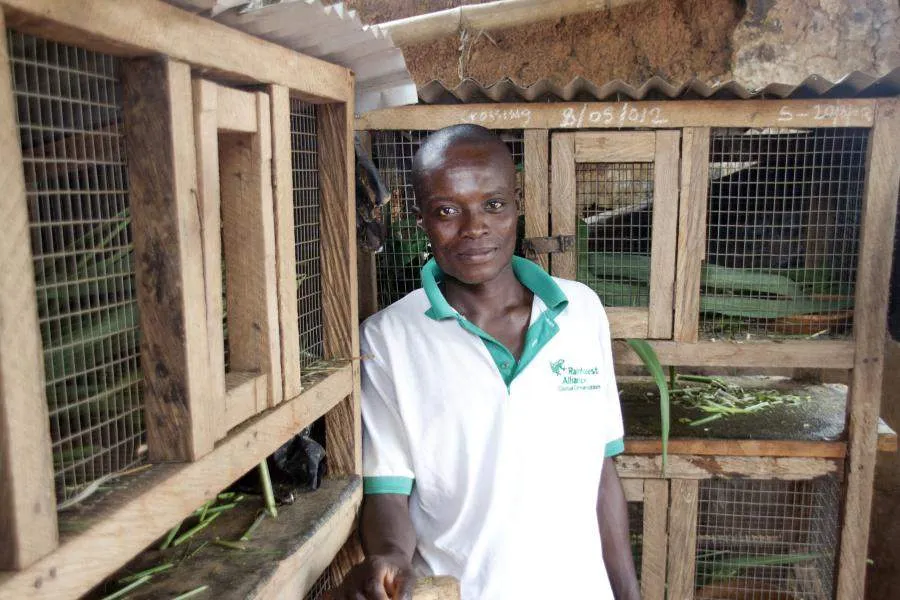
When the Rainforest Alliance began to work in Juaboso-Bia years ago, Adom says, it worked with the local community to co-design structures and institutions that would be self-sustaining—and the LMB has exceeded all expectations on that front. In addition to its many conservation activities, it has even been able to mobilize financing for its own projects, making it truly independent and sustainable.
Owusu-Cashiekrom agrees. “We are doing a fantastic job! We hope it will help Ghana and the world at large.” He adds, “I know it won’t stop here.”

